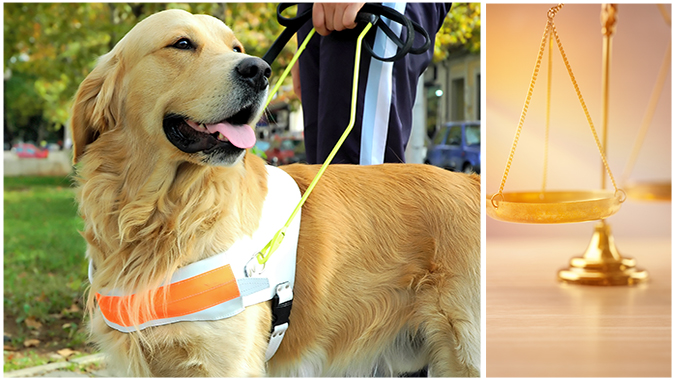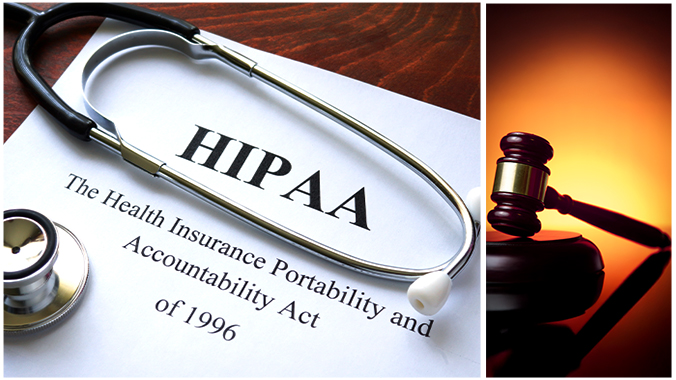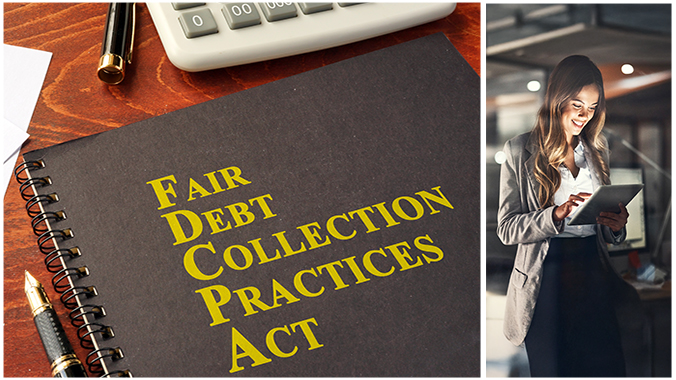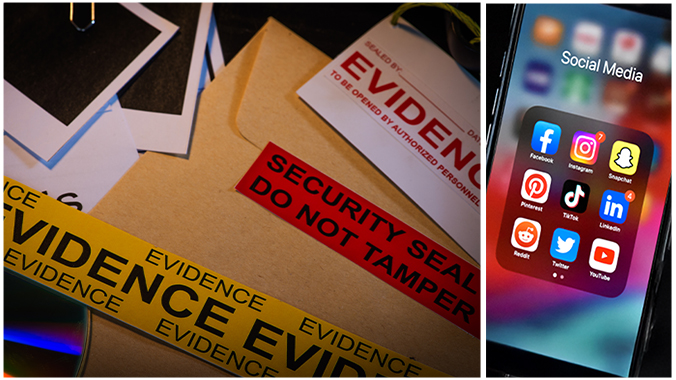How Companies are Calibrating Risk Tolerance for Generative AI, and AI and Legal Ethics: A risk-benefit analysis



On-Demand: July 25, 2023
Subscribe to Federal Bar Association CLE Pass...
Co-Sponsored by myLawCLE
Get this course, plus over 1,000+ of live webinars.
Learn More
MCLE Credit Information:
Select Your State Below to View CLE Credit Information
Tuition: $195.00
Training 5 or more people?
Sign-up for a law firm subscription plan and each attorney in the firm receives free access to all CLE Programs
Program Summary
Session I - How Companies are Calibrating Risk Tolerance for Generative AI – Michael R. Justus
Generative AI (GenAI) technologies raise novel issues across multiple legal and regulatory areas, including copyright, right of publicity, confidentiality, advertising, and more. Several litigations testing these issues are already working their way through courts. Meanwhile, regulators and legislatures around the world are scrambling to issue guidance and write new laws. Against this backdrop, companies in all industries must balance the benefits of using GenAI against the potentially serious risks. This is no easy task. We will discuss some risk-based approaches that are emerging among companies grappling with the new reality.
Key topics to be discussed:
- Case law updates regarding GenAI
- Legislative and regulatory updates regarding GenAI
- Strategies for creating and implementing GenAI policies and training
Session II – AI and Legal Ethics: A Risk-Benefit Analysis - Grace Wynn, and Julienne Pasichow
AI provides exciting opportunities for lawyers to supplement their legal expertise and complete tasks with greater efficiency. It is also fraught with ethical risks. For this reason, lawyers should exercise caution in entrusting tasks to AI and, if and when they do, scrutinize the work it produces. This ethics CLE will examine the relevant ABA Model Rules of Professional Conduct implicated by AI use. It will describe the opportunities afforded by AI, and how they intersect with critical rules of professional conduct including Rules 1.1, mandating that lawyers be competent in relevant technology, 5.3, requiring lawyers supervise those who report to them, 1.6, requiring that lawyers keep client confidences, and 1.4, providing standards governing how often and about what lawyers have to communicate with their clients. This program provides practical guidance about how to comply with your ethical obligations while reaping the benefits of AI.
Key topics to be discussed:
- Understand the ways AI can increase efficiency within the legal profession
- Recognize the confidentiality and competent risks inherent in AI use
- Identify your obligations when using AI to ensure adequate competence, confidentiality, communication, supervision, and record keeping
This course is co-sponsored with myLawCLE.
Date / Time: August 10, 2023
![]() Closed-captioning available
Closed-captioning available
Speakers
 Michael R. Justus | Katten Muchin Rosenman LLP
Michael R. Justus | Katten Muchin Rosenman LLP
A company’s brand is its most important asset, and Michael Justus helps his clients create and protect their brands. A litigator and counselor with broad experience in both IP and advertising law, Mike brings a marketing-savvy approach to the legal protection and enforcement of his clients’ core assets. From counseling on global trademark clearance and protection strategies to filing legal challenges against competitors’ misleading ad campaigns, Mike offers a full range of support to his clients and their brands. Mike also advises clients on novel issues involving artificial intelligence (AI).
Mike understands that legal strategy and business goals must be viewed together. Similarly, he sees that IP and advertising legal issues often converge and must be dealt with in tandem and in ways that an IP-only or advertising-only specialist may not see. And his understanding of the many facets of branding (from trademarks and logos to packaging and color schemes to the tone and claims used in messaging) allows him to collaborate with clients to solve problems in unique ways.
In his trademark practice, Mike handles enforcement and litigation matters in and out of court. He has handled lawsuits before federal courts around the country and numerous proceedings before the Trademark Trial and Appeal Board. Mike also collaborates with local counsel around the world to formulate global enforcement and litigation strategies. His experience includes managing comprehensive trademark enforcement programs for several famous brands in the insurance, fashion, construction and electrical equipment, and aerospace and defense industries. Mike regularly negotiates creative settlements to end or avoid disputes, including through mediation, and he has prepared numerous coexistence, consent, license, assignment and other agreements. He also guides clients through the entire trademark clearance and registration process using customized, cost-effective global protection strategies, from initial selection and clearance of new marks to obtaining US and foreign registrations.
In his advertising practice, Mike handles disputes and advises clients on compliance issues under the Lanham Act, FTC regulations and guidance, NAD precedent, state consumer protection laws, and other laws, regulations and standards. For example, Mike has handled NAD and other disputes involving “Made in USA” claims, “compare to” product labels, social media, online consumer reviews, and a wide variety of performance and comparative claims. He has served as lead advertising counsel for clients in the clothing and health care industries.
Mike’s experience handling complex matters in IP, advertising, and other legal and regulatory areas converges in his AI practice. He counsels clients regarding novel issues arising from use of AI tools involving copyright, confidentiality, right of publicity, trademark, advertising, licensing, and other legal and regulatory areas. Mike helps clients strategize and implement policies and training programs for use of generative AI tools by clients’ employees and vendors. He also tracks important case law and legislative updates from around the world regarding AI technologies and conducts training for clients’ in-house legal departments and business teams.
Mike is active in the International Trademark Association, currently serving as Subcommittee Chair of the Advertising Law Subcommittee. He is also a member of the Outside Counsel Committee for NAD and served as a member of the Planning Committee for the 2019 NAD Annual Conference. He regularly speaks and publishes articles regarding trademark and advertising.
 Grace Wynn | HWG LLP
Grace Wynn | HWG LLP
Grace Wynn focuses her practice on legal ethics and professional responsibility matters, civil and commercial litigation, and complex business and contract disputes.
Prior to entering private practice, Grace clerked for the Honorable Donald Middlebrooks of the United States District Court for the Southern District of Florida.
She received her J.D. from Duke University School of Law, where she served as Executive Editor of the Journal of Law & Contemporary Problems. Grace received her B.A., summa cum laude, from the College of William & Mary, where she was a Division I scholarship athlete in cross country and track and received the Provost Award for outstanding academic achievement by a student athlete all three of her collegiate years. Prior to entering law school, Grace worked as a Teach for America educator in rural Mississippi.
 Julienne Pasichow | HWG LLP
Julienne Pasichow | HWG LLP
Julienne Pasichow is an associate at HWG LLP. Her practice includes civil litigation, government investigations and enforcement actions, immigration, and legal ethics.
Julienne received her J.D., magna cum laude, from the University of California, Irvine School of Law, where she was an Associate Editor of the UC Irvine Law Review, an award-winning mock trial competitor, clinical student in the Criminal Justice Clinic, and participant in several pro bono projects ranging from misdemeanor expungements to facilitating legal name changes for transgender individuals. Julienne received her B.A., Phi Beta Kappa, from Oberlin College.
Agenda
Session I – How Companies are Calibrating Risk Tolerance for Generative AI | 2:00pm – 3:00pm
- Case law updates regarding GenAI | 2:00pm – 2:20pm
- Legislative and regulatory updates regarding GenAI | 2:20pm – 2:40pm
- Strategies for creating and implementing GenAI policies and training | 2:40pm – 3:00pm
Break | 3:00pm – 3:10pm
Session II – AI and Legal Ethics: A Risk-Benefit Analysis | 3:10pm – 4:10pm
- Understand the ways AI can increase efficiency within the legal profession | 3:10pm – 3:30pm
- Recognize the confidentiality and competent risks inherent in AI use | 3:30pm – 3:50pm
- Identify your obligations when using AI to ensure adequate competence, confidentiality, communication, supervision, and record keeping | 3:50pm – 4:10pm
More CLE Webinars
Trending CLE Webinars


























Upcoming CLE Webinars
























































![The Cloud and GenAI: Security, Audits, and the Related Ethical and Legal Responsibilities [Part 3]](https://federalbarcle.org/wp-content/uploads/2024/10/The-Cloud-and-GenAI_myLawCLE.jpg)










